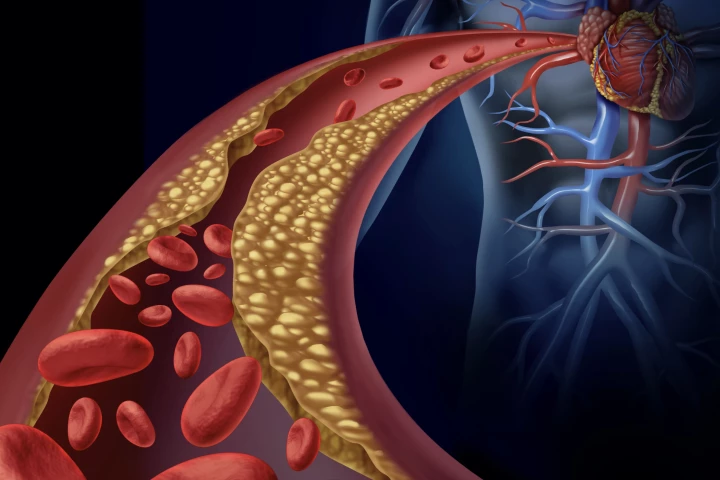Cholesterol
-
The sustainability of weight-loss drugs is under scrutiny as new research shows that people who stop taking GLP-1s regain the pounds and return to their original size after 1.7 years. It questions whether we're relying on this "magic cure" too heavily.
-
Coffee is one of the most widely consumed psychoactive substances on the planet, yet despite more than two billion cups being drunk each day, its impact on heart health remains surprisingly complex – and often misunderstood. This year we got answers.
-
In a world-first trial, scientists used a one-off CRISPR gene edit to switch off a liver “fat brake” gene, slashing stubborn LDL cholesterol and triglycerides in patients whose levels refused to budge on standard treatments.
-
A large international study of more than 23,000 patients has found that common medicines used to treat high blood pressure and cholesterol, as well as heartburn, may be impacting cancer treatment effectiveness.
-
A promising “two-in-one” experimental drug could tackle both type 2 diabetes and heart disease by slashing cholesterol and inflammation, potentially offering a powerful new way to protect the heart and improve metabolism.
-
In a massive international study, researchers identify four precise warning signs of a heart attack, stroke or heart failure, and understanding these measurable risk factors could help people understand their vulnerabilities long before a health event.
-
A fermented food that has been a staple on plates in Korea for thousands of years has gone global in the past decade, with new research revealing that kimchi can naturally lower triglycerides and blood pressure and regulate fasting glucose levels.
-
A new generation of nanoparticles can detect, shrink and clear plaques in the arteries, lowering inflammation and drawing out harmful cholesterol to be cycled via the liver. They offer a new way of diagnosing and fighting heart disease without drugs.
-
A world-first clinical trial has revealed that eggs can lower LDL cholesterol, with overall diet saturated fat is taken into account. It rewrites the narrative on dietary cholesterol and offers a science-backed redemption arc to a nutritional villain.
-
Some people can’t get their bad cholesterol levels down, even if they take cholesterol-lowering meds. A clinical trial using a combination of existing and not-yet-released cholesterol tablets lowered bad cholesterol by almost half.
-
One of the ketogenic diet's major perceived drawbacks is an increase in LDL, or so-called bad cholesterol. A new study, though, says that this cholesterol spike doesn't fit the conventional science in terms of its disease-causing ability.
-
The method used to brew coffee can significantly affect levels of natural cholesterol-raising compounds called diterpenes, according to a new study. It might be that the way your coffee is made is affecting your heart health.
Load More











